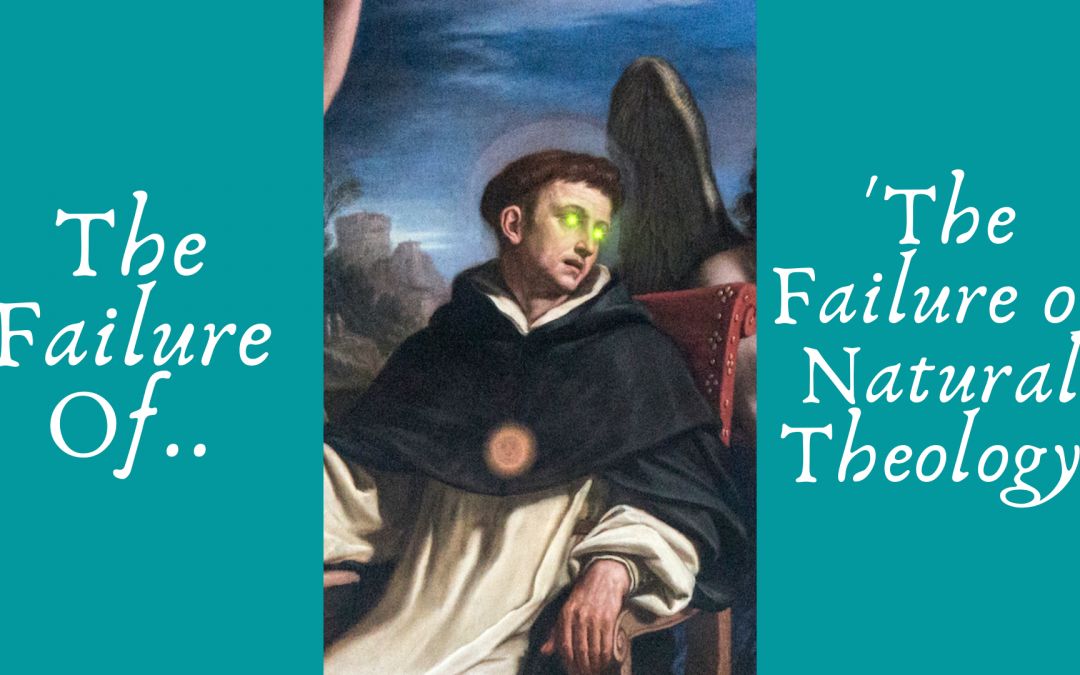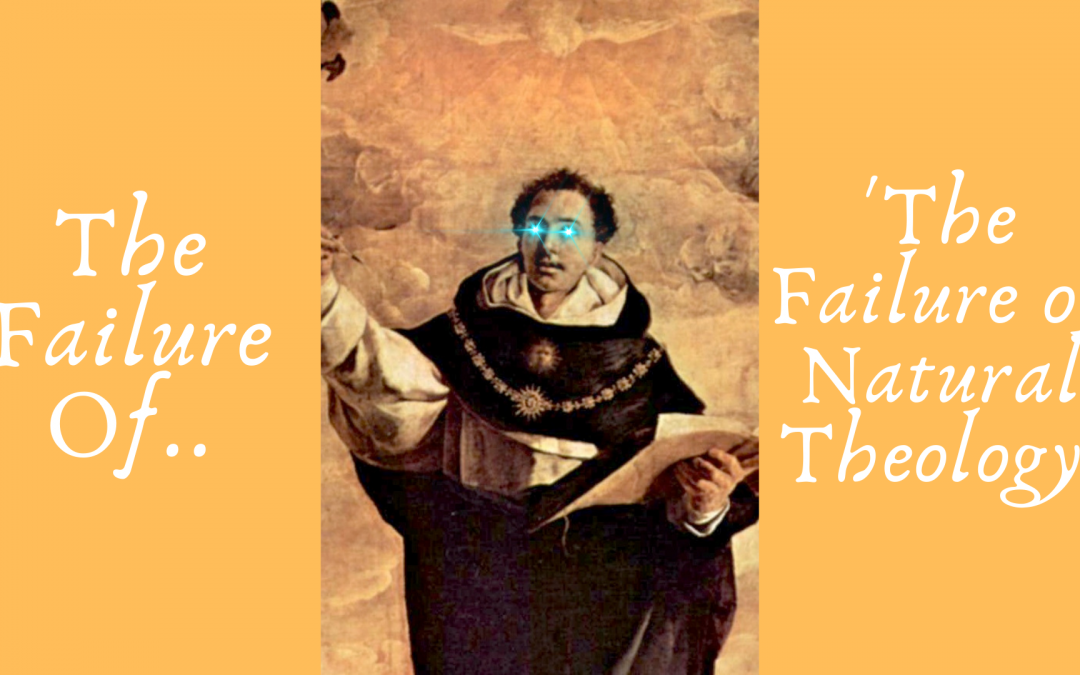
The Order of Theology, Classical, and Presuppositional Apologetics
Before understanding either of these apologetical routes, we need to understand what apologetics is. Apologetics refers to the defense (apologia) of the Christian faith, at least in this context. The landmark text bolstering the need for apologetics is 1 Peter 3:15, “But sanctify the Lord God in your hearts, and always be ready to give a defense to everyone who asks you a reason for the hope that is in you, with meekness and fear…” Briefly stated, apologetics is the science of answering those who question why we believe what we believe as Christians.
Subordinating Apologetics
Historically, apologetics, while scientific in nature, has been subjected to the queen science of theology, usually falling under the locus of prolegomena—the area of theology that asks the question, “Is theology possible?” To which the answer would be made in the affirmative, and the existence of God would therefore also be affirmed along with the theistic proofs in demonstration of that affirmation. As time progressed, however, apologetics came to be seen less as a subjugated science to theology, instead being understood as a driving force of theology.
Such a confusion of order has also resulted in the mixture of what used to be called the preambles of the faith with the articles of the faith themselves. Apologetics, in terms of order, happened prior to and distinct from the articles of faith. But in elevating the significance of apologetics nearly to the level of a stand-alone science which informs our theology, even the articles of the Christian faith, those things which must be known through special revelation and are necessary for our redemption are now influenced by apologetic methodology.
This issue has occurred in all three main apologetical schools of thought—classical, evidential, and presuppositional. This problem, therefore, is less an issue of apologetic method and more an issue of how we understand theology in general, and its placement among other related disciplines. However, presuppositionalism’s very genes demand this methodological confusion take place, and it is this I would like to—at long last—eventually address in this post. But we have some additional housekeeping to do—
Defining and Distinguishing Theology
The term theology, taken by itself, means something like “the study of God.” However, historically its definition is more precise. William Ames writes, “[Divinity] is called a doctrine, not as if the name of Intelligence, Science, Sapience, Art, or Prudence were not hereto belonging; for all these are in every accurate Discipline, and especially Divinity (Marrow, I. I. 2).” Peter van Mastricht likewise says, “Christian theology unites theory with practice, and is ‘a knowledge of the truth that is according to godliness’ (Titus 1:1) (Theoretical-Practical Theology, vol. 1, 78-79).”
Typically, there would be what Van Mastricht calls “the prolegomena and the system.” Prolegomena precedes the system (of dogma) and includes the mixed articles—articles of knowledge which are revealed in both nature and Scripture. Natural theology is included in Van Mastricht’s prolegomena, but he also subsumes it under the genus of “Christian theology.” It is here apologetics should be located, as part of natural theology. It is, after all, traditionally set forth in the form of the theistic proofs, a la., the Protestant scholastics like Van Mastricht and Turretin. However, the Reformed orthodox understood this natural theology, which I will here equate to the true sub-science of apologetics, not as an absolute or causal foundation for that which comes after, but as nothing more than an instrument to be used not only in defense of our believe in a God, but also in our further exposition of the Scriptures. Richard Muller states:
Witsius can even declare that the faint glimmerings of the natural light provide a “foundation” on which the gospel can build: “for as grace supposes nature, which it perfects; so the truths revealed in the gospel, have for their foundation those made known by the light of nature.” Although Witsius here addresses calling and, specifically, the character of the natural knowledge that seems to call human beings to God, only to leave them without excuse in their sins, he also, like Turretin and Owen, raises the issue of the positive relationship of natural reason and the truths it knows to revelation and supernatural theology (Post-Reformation Reformed Dogmatics, vol. 1, 301).
In the modern situation, apologetics is neither included in or identified with natural theology, which falls under the prolegomena. Instead, it is largely viewed as a science unto itself which is either devoid of any relationship to true Christian theology, or is identified with true Christian dogmatics itself, and thus ends up serving a definitional hermeneutical force in the contemporary exposition of the Bible. Either of these extremes loosely correspond to rationalism or idealism, respectively.
Classical Apologetics
I have just alluded to the classical model which views theology as an ordered science inclusive of natural theology or apologetics, to be located in prolegomena. Methodologically, this just is classical theology, and it rightfully houses (and should determine) what has come to be known as classical apologetics. Because classical apologetics and natural theology are intimately interwoven, we should understand how the Protestant Reformed orthodox have understood natural theology. To do this, I will once more defer to Peter van Mastricht. He begins his section on natural theology by saying, “Christian theology does not exclude natural theology… but includes it just as a larger quantity includes a smaller one (Theoretical-Practical Theology, vol. 1, 77).”
Within this same discussion, he notes its fourfold use, which does not disagree substantially from the uses identified by Francis Turretin. Van Mastricht says:
We note that natural theology has four chief uses. (1) The first has to do with God, who by means of it renders the impious without excuse (Rom. 1:20). (2) The second has to do with the pagans and atheists, who are most powerfully refuted by it (Acts 17:24-26; Ps. 8:2-3; Matt. 6:26). (3) The third has to do with revealed theology, which, at least with regard to us, is confirmed to an amazing degree when we discover that it agrees completely with natural theology. (4) The fourth has to do with us, who root ourselves chiefly in the recognition of revealed truth, that we discern that nature itself applauds it. And this is so even in our pursuit of the good, where nature itself calls us in the same direction as revelation.
Classical apologetics, therefore, should be seen as nothing less nor nothing more than an application natural theology.
Of course, classical apologetics and natural theology have themselves been understood in different ways. The Natural Theology of William Paley is much different than the natural theology found in Puritans like Peter van Mastricht. And this plays into the confusion between what is now called evidentialism and the historical understanding of classical apologetics. Whereas evidentialism argues for the probable existence of God based on one’s examination of natural effects (which then leads to a speculative conclusion), classicalism argues for the necessity of the existence of God, not from a mere examination of natural effects (think Paley’s watchmaker), but from the general rule to a necessary conclusion. Thomas Aquinas’ first way, for example, begins “It is certain, and evident to our senses, that in the world some things are in motion.”
This argument is formally deductive, arguing from general premises to a certain and necessary conclusion, should the premises hold. This is different from evidentialism in that evidentialism takes particular things, adds them together, and upon amassing enough evidence, draws a probable implication. Classicalism argues from generalities, which do not necessarily need to be true of every particular, in order to draw a necessary conclusion. This is why Thomas begins, “some things are in motion.” Evidentialism would not argue from the universal of “motion,” neither would it argue from gradation or teleology. It would instead look at particular artifacts and point to how complex they seem, how designed they must be, and how they confirm the biblical account.
Natural theology, classically understood, makes it’s object God as He is made known through His effects using laws of reason, i.e. logic, that could not be otherwise. It does not presume to validate the biblical record, though it bears witness to it, nor does it demonstrate faith (otherwise faith would not be faith, but reason). We are not dependent upon some deep acquaintance natural theology it for warranting our beliefs in the articles of faith, though it may assume or even contain means by which we ascend to such articles of faith.
Presuppositional Apologetics
Presuppositionalism identifies the project of apologetics with biblical theology, such that the Bible is our apologetic and our apologetic is the Bible. Greg Bahnsen writes:
The Christian apologist must not trade away the certainty of knowing God for a probability or subjective moral conviction; he must unashamedly presuppose the truth of the Word of Christ in Scripture as congruous with the inescapable self-revelation of God in nature and man’s constitution (Presuppositional Apologetics, p. 5 ).
Rather than there being a taxis or order in the science of theology in general beginning with prolegomena prior to reaching the doctrine of Scripture, the doctrine of Scripture, according to Bahnsen, must be consonant with prolegomena. I want to be careful. The Bible can and does inform our prolegomena, and our prolegomena cannot contradict it. But our understanding of the Bible, and our rules of interpretation, must likewise be informed by prolegomena, e.g. the assumption theology is possible, God exists, etc.
As pious as this may sound, there is a devastating rebound effect from presuppositionalism not just on apologetics, but upon Scripture and the doctrines of the faith in general. If Scripture and prolegomena are essentially the same thing, if they are put in the same place and are to that extent indistinguishable, the Bible may be prolegomena, but the prolegomena also becomes the Bible (for better or worse). This is a massive problem because prolegomena would usually be the place where philosophical presuppositions are disclosed and defended, a la., natural theology. But because presuppositionalism, in accordance with its name, presupposes the Bible itself, any philosophical assumptions being made are either not admitted or are severely ignored, and then the interpretation of Scripture is subjected to such unadmitted precommitments which run the risk of skewing the interpreter’s approach to God’s Word.
If the presuppositionalist wants to discuss philosophical commitments prior to the text of Scripture, it would then follow “the Word of Christ” is not being presupposed in such a case. In such an event, there would be a prolegomena (something said before) prior to Scripture. It is perhaps the presuppositionalist’s collapse of the distinctions made within theology that accounts for the contemporary issues we face concerning the doctrine of God. When presuppositions that come prior to one’s examination of the text of Scripture are ignored or not admitted, it is easier to read the text with blurry lenses.
Presuppositional apologetics, far from being a mere apologetic, is an entire philosophical apparatus concerning the nature of divine and human knowledge and the construction of theological system. Such a system, which banishes any discussion had prior to Scripture and the articles of the faith, is bound to drive one’s understanding of the articles of faith through said epistemological lens. If this epistemological lens is Cartesian, Kantian, or Hegelian, those holding it would not know. And what’s worse, the doctrine of Scripture would necessarily be understood through this particular epistemic filter. The very assertion, “We must presuppose Scripture along with God’s self-disclosure in nature” would make it impossible to evaluate if the one attempting to do so even understood what Scripture was. Such a definition would be assumed or presupposed, and thus not allowed scrutiny. Who is to say, for example, a person’s idea of Scripture—which they allegedly presuppose—is actually a bad worldly philosophical assumption. How would they know such a thing unless there were some method by which they could rightly place the doctrine of the Word of God in relationship to the whole of the Christian faith?
Presuppositionalism allows for the employment of theistic proofs, but not in a discussion prior to the doctrine of Scripture, that is, as part of prolegomena. Thus the proofs, and any natural knowledge of God (innate or otherwise), are not allowed to inform one’s understanding of Scripture. This is why some have decided to apply the anthropological language in Scripture, i.e. “God walking in the garden in the cool of the day (Gen. 3:8),” directly to the simple and immutable essence of God which results in a denial of immutability and simplicity. There is no divine metaphysics informing one’s understanding of biblical language in this scenario. Scripture itself does not disclose a philosophy of language so, again, on the presuppositional scheme, a philosophy of language is presupposed, rather than consciously examined in any measure, and then the Scriptures are subjected to it. All the while, the person making this mistake has the best of intentions, telling everyone, “We presuppose the Word of God!”
This results in devastating consequences, and explains the origin of countless heresies over the last 2,000 years. Again, it sounds pious to say, “We presuppose the Bible.” But the practical effect is the subjugation of the meaning of Scripture to one’s unexamined epistemological assumptions. To use their language, it is to cloak a “worldview” in biblical categories whilst refusing to examine that worldview while at the same time presupposing said worldview when reading and interpreting the Bible.
Conclusion
I want to be very clear that I do not mean natural theology itself is the foundation upon which and the lens through which all Scripture ought to be viewed, though it does entail instruments by which we understand and exposit the text, e.g. knowledge of God and some things about God to name a couple. The point here is the necessity of method in theology. If we neglect all method, then the order of subjects and the subjects through which we view other subjects will be confused. Hear Peter van Mastricht once more—
A method is nothing but an apt arrangement of the different topics according to the dependence they have upon each other, first with respect to themselves in how they mutually coexist, and then with respect to us in how we understanding them. This is necessary so that the method of theology corresponds not only to the topics that must be taught—by it, for example, more general matters are placed ahead of specific ones and simpler matters ahead of complex ones—but that it corresponds also to the comprehension and use of the students (Theoretical-Practical Theology, vol. 1, 69).
That last line is crucial.
Part of our current ailment is the inability for Christians to relate subjects of theology to one another in terms of their respective, causal relationships. Thus, the doctrine of God cannot inform our interpretation of Scripture, for example. Instead, it is thought, Scripture must entirely shape our doctrine of God (because it is said to be presupposed). But this is problematic because what Van Mastricht calls “the arrangement of different topics according to the dependence that have upon each other” is simply not permitted. As a result, God becomes entirely determined by one of His effects—our understanding of Scripture. Hence Arianism, Sabellianism, Anthropomorphitism, Arminianism, Socinianism, etc.





